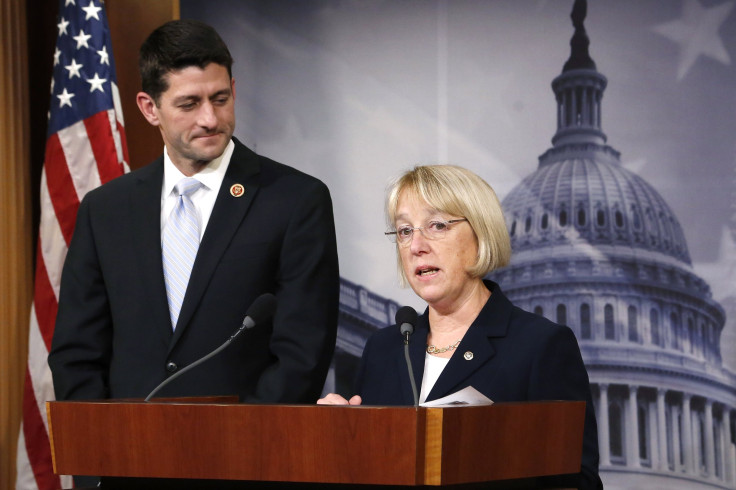Budget Conference Committee Delivers, But Are The Votes There?

Concern about whether the newly brokered two-year budget deal can pass the U.S. House of Representatives may soon be put to rest. The chamber’s Rules Committee will gather for an emergency meeting at 2 pm Wednesday to determine how the bill will come to the floor.
A vote could come as early as Thursday, as the House is set to go out of session on Dec. 13. House and Senate Budget Committee leaders Rep. Paul Ryan, R-Wis., and Sen. Patty Murray, D-Wash., unveiled the deal Tuesday evening, which contains $85 billion in savings and eliminates $63 billion in sequester cuts. The agreement will achieve $23 billion in deficit reduction and sets discretionary spending level at $1.012 trillion for fiscal 2014 and $1.014 trillion for the following fiscal year.
The quick movement to get a vote done could be an indication that leaders want to pass the bill before the House adjourns. However, it could also be a move to head off opposition.
True to form, conservatives -- already concerned about the debt, and would have preferred the post-sequester spending level of $967 billion -- are opposing the deal because of the increased spending levels.
“This budget continues Washington’s irresponsible budgeting decisions by spending more money than the government takes in and placing additional financial burdens on everyday Americans,” Sen. Marco Rubio, R-Fla., said in a statement following the budget conference committee announcement. “In the short run, this budget also cancels earlier spending reductions, instead of making some tough decisions about how to tackle our long-term fiscal challenges caused by runaway Washington spending.”
Even influential conservative groups are balking at the plan, which would remove the yearly funding chaos on Capitol Hill that had lawmakers careening from crisis to crisis, avert future government shutdowns, and give lawmakers the breathing room to carry out their regular order of business.
Michael A. Needham, chief executive officer of Heritage Action for America, a conservative policy advocacy group, wrote an op-ed in USA Today, stating that the Ryan-Murray budget agreement is a “step backward.” He cited the increase in federal spending, the higher fees on air travel, and the promise of future cuts as drawbacks.
“Some are heralding the agreement as an indication politicians can put aside their petty differences and achieve something,” Needham wrote. “In the coming days, members of Congress will have to explain to their constituents what exactly they achieved by increasing spending, increasing fees and offering up another round of promises waiting to be broken. That will be a tough sell back home.”
However, Politico has reported that some House Republicans are confident they are building the support needed to pass the measure. Still, it remains to be seen whether House Speaker John Boehner, R-Ohio, will be able to secure Republican backing to merge with the Democratic minority to get the bill across the finish line. And even Democrats like Rep. Raul M. Grijalva, D-Ariz., have already voiced opposition to the deal because of its failure to close corporate tax loopholes.
© Copyright IBTimes 2025. All rights reserved.





















